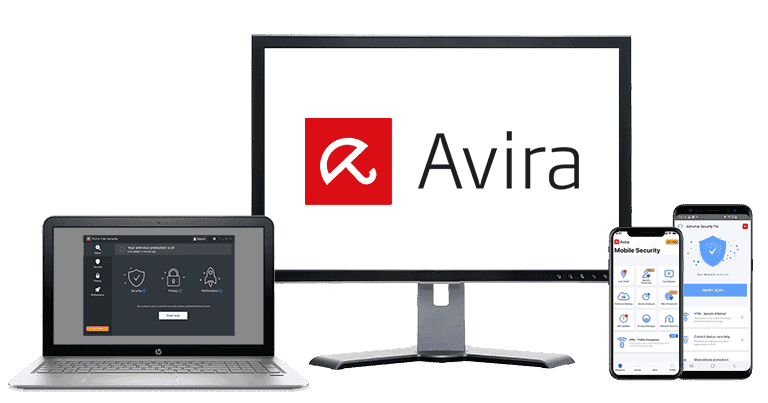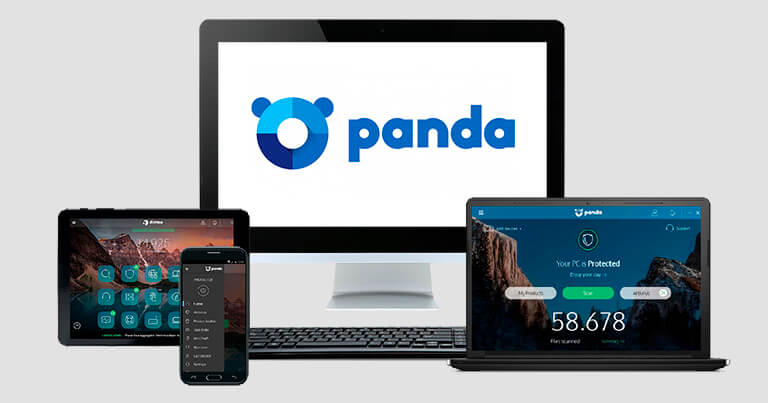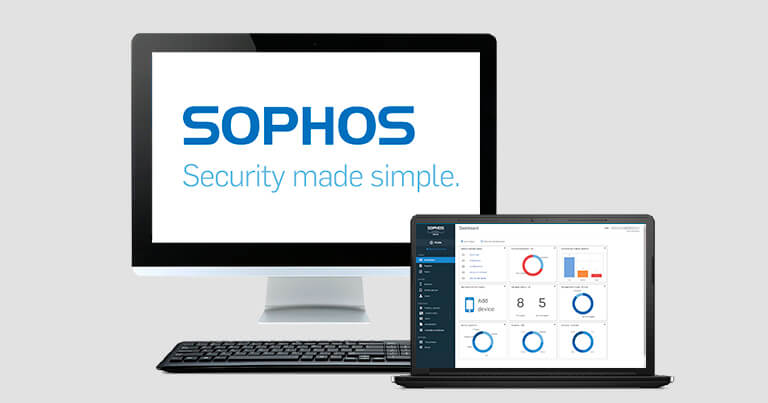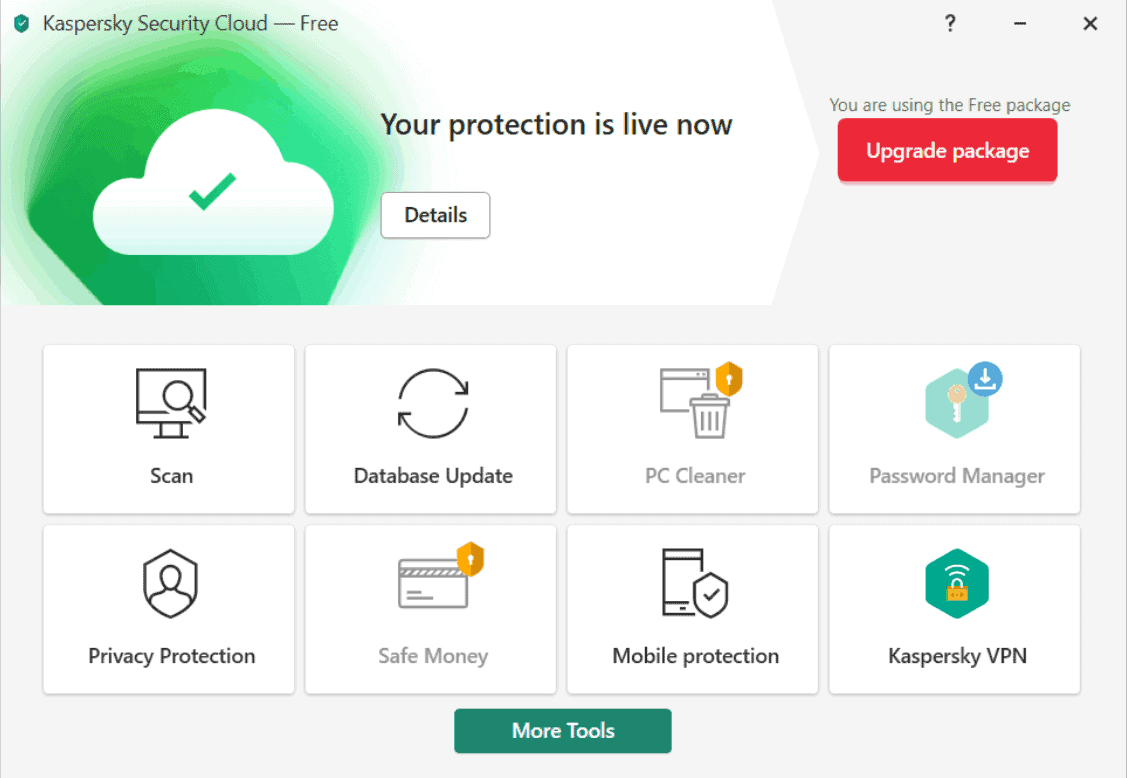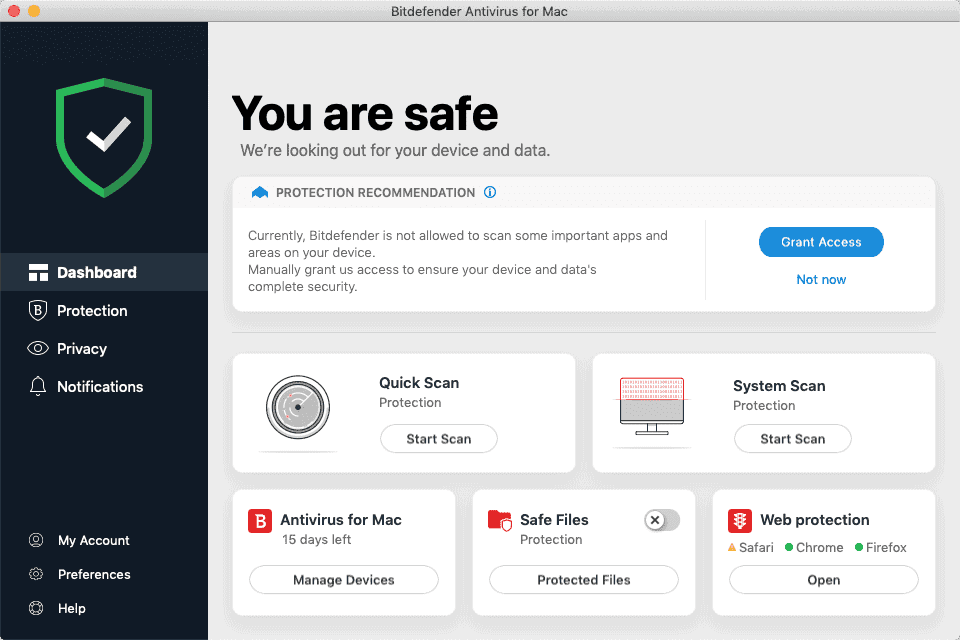- 5 Best (REALLY FREE) Antivirus Software for Windows [2021]
- Short on time? Here’s the best free Windows antivirus for 2021:
- Here’s a summary of best free Windows antiviruses for 2021:
- Yes, You Already Have a Free Antivirus on Your PC, But It Isn’t Good Enough
- How I Rated the Best Free Windows Antivirus Software
- Top Brands That Didn’t Make the Cut:
- 🥇1. Avira Free Security for Windows — Best Free Antivirus in 2021
- Bottom Line:
- 🥈2. Panda Free Antivirus for Windows — Best Free Antivirus for Beginners
- Bottom Line:
- 🥉3. Sophos Home Free — Best for Easy Remote Management
- Bottom Line:
- 4. Kaspersky Security Cloud (Free) — Good Free Malware Detection + Decent Extras
- Bottom Line:
- 5. Bitdefender Antivirus Free — Simple Free Antivirus Scanner
- Bottom Line:
- Free Antiviruses for Windows — Frequently Asked Questions
- What’s the catch with free antiviruses?
- Why should I use another free antivirus instead of Windows Defender?
- What are the most common types of viruses that affect Windows computers?
- Will Windows allow me to install a free antivirus?
5 Best (REALLY FREE) Antivirus Software for Windows [2021]
Short on time? Here’s the best free Windows antivirus for 2021:
- 🥇 Avira: Excellent free antivirus protection that includes real-time malware scanning, a safe shopping extension, a privacy + performance optimizer, and a free VPN.
- Download Avira Free Security for Windows here.
I tested every free antivirus I could find against thousands of Windows malware files. Running virtual environments for Windows 7 – Windows 10, I looked at each antivirus’s malware protection capabilities, its user interface, and its reputation for safeguarding user privacy. It wasn’t an easy task — there are only a few free antiviruses that offer decent protection for Windows PCs.
But there are also some free antivirus programs that offer improvements over Windows’s built-in protections. The 5 downloads here each offer free virus protection alongside a decent set of free internet security tools.
That said, every free antivirus is going to include a few frustrating limitations. That’s why I always recommend investing a little bit every month into premium antivirus software that includes protection against all types of malware — with extra features like a VPN, password manager, parental controls, and dark web monitoring (Norton 360 has all of these features, is ranked as the best antivirus software for 2021, and is very affordable).
I tested and ranked each free antivirus listed here for malware detection, ease of use, and additional cybersecurity features. Unfortunately, no free antivirus includes all of the features you need for complete protection, but it’s better to protect yourself with the best free antivirus than no antivirus at all!
Here’s a summary of best free Windows antiviruses for 2021:
- 1.🥇 Avira — #1 free antivirus for Windows in 2021.
- 2.🥈 Panda — Strong antivirus protection with a beginner-friendly interface.
- 3.🥉 Sophos — Good real-time scanning with remote access for 3 PCs.
- 4. Kaspersky — Free extras like a VPN, dark web monitoring, and a password manager.
- 5. Bitdefender — Simple free antivirus with low CPU load.
- Frequently Asked Questions about Free Antiviruses for Windows.
UPDATE (2021): One of the top antivirus providers, Norton, recently removed its free package, so I’ve removed it from this list. But Norton really is one of the best internet security providers out there, so if you don’t want to deal with the hassles of a free antivirus, a low-cost premium antivirus like Norton 360 is always a good choice. (Read the full Norton 360 review here.)
Yes, You Already Have a Free Antivirus on Your PC, But It Isn’t Good Enough
Your Windows computer already comes with Windows Defender (some newer Windows 10 computers call it “Windows Security” or “Microsoft Defender”) — which, as we saw in our full review, is a decent free antivirus. But the problem with Windows Defender is that it’s rarely updated, it doesn’t include additional internet security protections, and it frequently has vulnerabilities that don’t get fixed (sometimes for several years!). Plus, Windows Defender consistently ranks below the top antivirus scanners in our independent lab testing. That’s why I always recommend keeping your PC as safe as possible with third-party antivirus software.
All of the free antiviruses listed here are significantly better than Microsoft’s Windows Defender antivirus. The free downloads on this list are from top-notch cybersecurity companies that are offering their premium antivirus protection for free. These are some of the top antivirus and anti-malware engines in the world — and our independent lab tests have confirmed that these antivirus engines are much stronger, faster, and better than Microsoft’s Windows Defender.
And some of the free programs on my list also include additional cybersecurity protections. My #1 free Windows antivirus, Avira Free Security for Windows, is particularly generous with its free offerings, but even Avira’s free plan has some annoying limitations that don’t exist on its paid plans.
In general, cybersecurity companies try to entice you with their free products, but they’re ultimately looking to convert you into a paying customer. If you’re looking for the best protection for all of your devices, you’ll need to pay for premium antivirus software. Unfortunately, there’s no way around this.
However, if you’re just looking for a simple free malware scanner with a couple of decent web protections that can improve on Microsoft’s Defender, then all of the products on this list will be good enough for you.
How I Rated the Best Free Windows Antivirus Software
- Malware detection. I downloaded almost 1,000 malware files onto my test PC, including trojans, spyware, ransomware, rootkits, and keyloggers. I tested disk scans and real-time protections when available, and I only considered antivirus scanners for this list if they were able to detect malware more effectively than Windows Defender.
- Additional features. Some free antiviruses have extra features like password managers, VPNs, and anti-phishing protections. I tested all of these features to find out which ones are an added value, and which ones are too limited, don’t work properly, or aren’t really useful.
- Ease of use. Since Windows Defender is always running automatically, a free antivirus has to be very easy to use, both for experienced and non-technical users. All of the products on this list have user-friendly dashboards, intuitive features, and decent customer support.
- Genuinely free. Brands usually try to trick you into staying with them by offering a free trial and then making you pay to keep using the product. I checked to make sure that each one of these programs was actually free and not just offering a “free trial”.
Top Brands That Didn’t Make the Cut:
I’ve spent a long time compiling and revising this list to guarantee that I’m offering you a high-quality resource. You may be surprised to see that some of the top antivirus brands didn’t make the top 5. Here are a few of them:
- Avast. While Avast — and their subsidiary antivirus company AVG — continue to offer two pieces of widely used free antivirus software (Avast Free Antivirus and AVG AntiVirus Free) their repeated privacy violations have caused too many concerns. You can read more here.
- TotalAV. TotalAV is one of my favorite antiviruses of 2021. It comes with excellent real-time scanning, powerful device optimization tools, and a VPN with unlimited data. There is a free version which you can get here, but it’s only a basic antivirus scanner and is not as full-featured as the others on this list. But if you need a high-quality antivirus, TotalAV’s low-cost internet security packages are some of the best on the market.
- Norton. It’s really a shame that Norton doesn’t even have a “free trial” of its Windows antivirus. But like I said earlier, Norton is still one of the best antiviruses in the world for protecting PCs, so if you’re looking for premium protection, Norton is likely the best option.
🥇1. Avira Free Security for Windows — Best Free Antivirus in 2021
Avira Free Security for Windows is my favorite free Windows antivirus in 2021 — it has one of the best anti-malware engines on the market, includes more free features than any other competitor, and is really easy to use.
Avira’s virus scanner operates in the cloud — so its detection and analysis doesn’t actually take place on your PC — making Avira extremely fast, lightweight, and low on system resources.
Avira’s anti-malware engine detected all of the malware files in my testing, and I was able to run CPU-intensive programs during scans with almost zero slowdown. Paid programs like McAfee and Norton are equally effective at detecting malware, but their full disk scans will slow down your system much more than Avira will.
Avira’s free antivirus also comes with some excellent extra features, such as:
- Safe Shopping browser extension.
- Privacy & performance optimizer.
- VPN (500 MB monthly limit).
- Password manager.
- Game booster.
- Firewall.
- File shredder.
- And more…
The Safe Shopping browser extension for Firefox and Chrome is really good — it blocks suspicious phishing sites, web trackers, and unwanted advertisements. The extension also automatically recommends links to better deals when shopping online. I was actually able to find a lot of good deals, but it didn’t work 100% of the time (still pretty good though!).
I’m also a big fan of Avira’s privacy and performance optimization tools — they cleaned out my cookies and junk files, and also fixed hidden privacy settings that were leaking personal information on the web.
That said, I think the VPN that comes with Avira’s free antivirus is not that good. It’s limited to just 500 MB per month, which is barely enough to watch a couple of really short videos, and it only lets you connect to 1 server location, meaning you won’t be able to use the VPN to access geo-restricted content from around the world.
If you want a fast and reliable VPN with unlimited data, multi-device support, and advanced system optimization tools, you should consider upgrading to Avira Prime, which is one of the best antivirus suites of 2021.
Bottom Line:
Avira’s cloud-based, free virus scanning engine is one of the best on the market — it’s lightweight, fast, has perfect detection rates, and is 100% free. I’m also a big fan of Avira’s Safe Shopping browser extension and privacy optimizer, both of which offer significant improvement over Microsoft’s built-in protections. To get more advanced internet security protection, you’ll need to upgrade to one of Avira’s paid plans, but in terms of free Windows antiviruses, it doesn’t get better than Avira.
🥈2. Panda Free Antivirus for Windows — Best Free Antivirus for Beginners
Panda Free Antivirus for Windows is lightweight, secure, and easy to use — during my tests, Panda’s antivirus scanner detected significantly more adware, spyware, and ransomware files than Windows Defender. Panda’s real-time protection also performed really well, blocking most of the malware files I tried downloading to my PC.
I also like that Panda has a gaming mode in its free antivirus — whenever you’re playing a game or watching a video in full screen, Panda automatically suspends notifications.
Another thing that makes Panda a good choice for Windows users is the Rescue Kit feature, which allows you to download a bootable version of Panda to a USB drive and then use the USB drive to clean an infected PC and get it up and running again.
Panda’s free antivirus also comes with a secure VPN. It provides fast connection speeds, but it has a data limit of 150 MB per day — this is a big improvement over Avira’s 500 MB per month, but it’s still not nearly enough data for streaming or file sharing. Panda’s VPN only lets you access 1 server, so it’s not good for unblocking geo-restricted content — for that, you’ll need a better VPN.
You can only get unlimited VPN data (and access to select various worldwide servers) on the Panda Dome Premium plan, which also offers extra features like a firewall, anti-ransomware protection, anti-phishing protection, advanced system tune-up tools, a password manager, and parental controls. All of Panda’s premium plans come with a 30-day money-back guarantee.
Bottom Line:
Panda’s free antivirus is a good, easy-to-use antivirus, offering 100% free real-time malware protection. With lightweight malware scanning, an automatic gaming mode, a Rescue Kit, and a VPN, Panda is an excellent free internet security product. However, the VPN is limited to 150 MB per day on a single server. If you want unlimited VPN access — and other extras like a firewall, anti-phishing, password manager, and parental controls — you’ll need to upgrade. Panda offers 4 different pricing tiers for paid users, so it’s easy to find the right plan for you — or you can just give Panda Free a try and upgrade later.
🥉3. Sophos Home Free — Best for Easy Remote Management
Sophos Home Free offers pretty good anti-malware protection. It also includes some helpful web protections, and covers up to 3 PCs.
In my antivirus testing, Sophos was able to detect a decent amount of malware threats, but it missed all of my test ransomware files — Sophos’s free version doesn’t include ransomware protection, which is a big problem! Sophos also offers basic anti-phishing protections — they’re better than Chrome’s built-in protections, but they’re definitely not as good as Avira’s.
I really like Sophos’s remote management feature — you can access antivirus scanning and real-time protection updates on up to 3 devices through the Sophos online dashboard.
In addition to multi-device protection and remote management, Sophos is also a decent choice for families because it has free parental controls. However, Sophos’s parental controls are pretty basic — you can only choose which categories of sites to block. If you’re looking for advanced parental controls like app scheduling and location tracking, you should consider a premium antivirus like Norton 360 Deluxe.
Sophos Home Free is pretty good, and Sophos Home Premium adds advanced malware and ransomware scanning, additional web protections, and coverage for up to 10 devices — and it has a 30-day money-back guarantee.
Bottom Line:
Sophos offers pretty good antivirus scanning and remote management for up to 3 devices — which is pretty generous for a free antivirus. Sophos’s free version also has basic parental controls (only content filtering) and anti-phishing protection. Users looking for coverage on up to 10 devices, advanced malware and ransomware protection, and advanced web safety tools should upgrade to Sophos Home Premium.
4. Kaspersky Security Cloud (Free) — Good Free Malware Detection + Decent Extras
Kaspersky Security Cloud — Free is good at detecting and removing malware, and it also comes with plenty of extras — including:
- VPN (200 MB daily limit).
- Password manager (15 entries limit).
- Data breach monitoring (only 1 account).
- Basic system cleanup tools.
- File shredder.
- Virtual keyboard.
Kaspersky’s free antivirus provides good real-time malware protection, but its additional features are very limited. Kaspersky’s VPN provides 200 MB per day — more daily data than Panda or Avira — but still not enough for streaming or other data-heavy tasks. Kaspersky also only lets free users connect to 1 server location, so you won’t be able to access geo-locked content.
And Kaspersky’s free password manager only saves a total of 15 entries — this includes both logins and sensitive documents (like credit cards or passport details). I can’t say I’m too impressed with Kaspersky’s data breach monitoring either — free users can only check the email associated with their Kaspersky account (and they have to do it manually, unlike paid customers who get automatic data breach checks).
If you like Kaspersky’s interface and you want access to its unlimited VPN, password manager, parental controls, and web protections, then you’ll have to upgrade to one of Kaspersky’s paid plans. All Kaspersky purchases include a 30-day money-back guarantee.
Bottom Line:
Kaspersky’s free antivirus comes with a good malware scanner and a ton of additional features, but most of them are very limited in functionality. Kaspersky’s VPN has a daily cap of 200 MB, the password manager lets you store up to 15 logins and credit cards, and the data breach monitoring only checks 1 email address. Upgrading to one of Kaspersky’s paid plans gets you all of these features without any limitations, plus extras like parental controls, advanced web protections, and more.
5. Bitdefender Antivirus Free — Simple Free Antivirus Scanner
Bitdefender Antivirus Free is a good choice for users looking for a simple antivirus scanner that they don’t need to think about after installation. Bitdefender’s cloud-based anti-malware engine is designed to run in the background, with only essential notifications in case of suspicious program activity. Malware scans, detection, and removal all happen automatically, unless you decide to adjust the settings.
Bitdefender detected almost all of the malware in my tests, including tricky files like adware and rootkits — it also scanned my device faster than any other product on this list.
Bitdefender’s anti-phishing and fraud protection features are pretty good as well. Bitdefender flagged all of the latest known phishing sites and alerted me when I was asked to enter private data onto 3 different suspicious web forms.
Bitdefender’s free plan is good for detecting malware and phishing sites, but not much else. If you’re looking for features like a firewall, performance optimization tools, a password manager, parental controls, or a VPN, then you should get Bitdefender Total Security — it provides all of those features for up to 5 devices, it’s reasonably priced, and it has a 30-day money-back guarantee.
Bottom Line:
Bitdefender has a cloud-based scanner with excellent detection rates, includes anti-phishing protection, and is very easy to use. Bitdefender’s free antivirus is a good choice for users only looking for basic free malware protection without any extra features. However, I’m a big fan of Bitdefender’s paid antivirus suites, which provide a really good range of features for less money than most competing internet security packages.
Free Antiviruses for Windows — Frequently Asked Questions
- What’s the catch with free antiviruses?
- Why should I use a free antivirus instead of Windows Defender?
- What are the most common types of viruses that affect Windows computers?
- Will Windows allow me to install a free antivirus?
What’s the catch with free antiviruses?
There is no such thing as a truly free antivirus. You‘re always going to “pay” with something. Most antivirus companies limit the free version of their software to only offer basic protection. This leaves a lot of holes in your computer’s cybersecurity defense. The antivirus company hopes you’ll recognize you’re not well-protected, and they’ll try to get you to upgrade to the paid plan by sending you a ton of notifications and advertisements.
Some other antivirus companies even sell free users’ data to large corporations for marketing purposes — the popular free antivirus Avast (who also owns AVG) was just accused of doing this exact thing.
If you’re only using your device for simple online browsing or word processing, you’re probably fine with a free antivirus (and the ones on this list are the best free antiviruses out there). But, in general, if you store any kind of sensitive information on your Windows device, it’s always better to invest in a full-featured internet security suite than it is to trust a free antivirus.
Why should I use another free antivirus instead of Windows Defender?
Windows Defender is not a bad antivirus — it even ranks a little bit better than some third-party free antiviruses. But it just can’t compete when top cybersecurity companies like Avira and Panda are handing out excellent free antivirus software, almost all of which offer free protection against threats Windows Defender doesn’t protect against (like phishing sites, malicious web trackers, data breaches, etc.).
Indeed, most of the products on this list have substantially better free antivirus protection than Microsoft’s built-in Windows Defender antivirus.
You can read this blog post if you’d like to learn more about why Windows Defender isn’t good enough to keep users safe in 2021.
What are the most common types of viruses that affect Windows computers?
While there are literally billions of malware attacks reported annually, trojans and adware are consistently the most common types of malware found on Windows computers.
Trojans look like other files with extensions like .exe and .doc — but once downloaded, trojans can initiate a backdoor attack to steal user data, to incorporate a Windows device into a botnet, to give a hacker direct access to a computer, or to simply crash and erase the entire OS.
Because hackers are constantly developing new malware for Windows, it’s crucial that your antivirus uses a malware database that’s consistently updated. Avira’s malware scanner is based in Avira’s cloud, so its malware database is always up-to-date, with no need for users to worry about downloading or installing database updates.
Will Windows allow me to install a free antivirus?
Absolutely! Windows will automatically turn off Microsoft’s built-in virus protection when a new third-party antivirus software is installed. If you decide to uninstall your third-party antivirus, your PC will automatically ask you to reactivate the Windows Defender antivirus.
That said, if you’re going to replace Defender, you should consider investing a little bit into premium cybersecurity protection. Free antivirus software just isn’t as good as paid antivirus softwares — you really do get what you pay for, and when it comes to keeping all of your devices and digital data safe, a paid antivirus like Norton 360 is definitely worth the investment.
If you’re looking for advanced protection and a lot of other great cybersecurity features, check out this list of the best premium antivirus products on the market.
